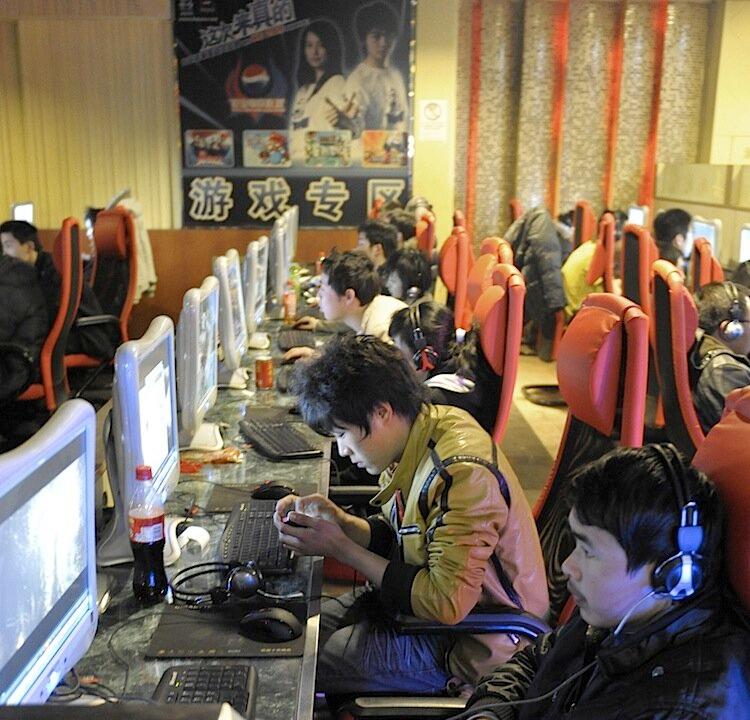WASHINGTON—Alex Li’s father was arrested after the police tracked his Internet address with the Golden Shield, a sophisticated network surveillance system designed with the aid of American high-tech companies and used by the Chinese Communist Party to capture dissidents.
The case is a dramatic example of the connection between human rights, technology, and international trade--which in the case of the U.S.-China relationship can’t be separated, according to a panel hosted by the Congressional-Executive Commission on China on Thursday.
The commission called witnesses who have been targeted by communist China’s security forces, and experts in technology and international trade who are seeking to defeat Chinese censorship.
Alex Li’s case stands in the dark intersection of human rights and international trade. His father, Li Yuanlong,was a member of the Guizhou Democracy Party and thus a target for political punishment. Li believes that Cisco, an American Internet company, was instrumental in developing the system that tracked his father down.
Technology helped repress the Li family, but it may also provide hope of defeating surveillance and censorship.
Xiao Qiang, founder of the website China Digital Times, compiles censorship directives received from China, and is also working with Berkeley computer engineers to “test, evaluate and incubate” anti-censorship technologies.
He noted that content monitoring is a headache for Chinese Internet companies: they have to hire hundreds of people, constantly stay on top of the latest censorship guidelines (updates come every hour), and carry out the orders of the state when it comes to blocking people from their services.
A recent censorship directive cited by Xiao Qiang included deleting all news about the grassroots campaign to donate money to Ai Weiwei, after he was hit with politically-motivated tax claims.
But the daunting array of instruments of censorship and retribution have not deterred a wave of dissent in China. Xiao Qiang has previously authored a book chapter on the creativity of Chinese netizens in exposing and ridiculing the Communist Party. This is called a “coded resistance,” because it often includes the clever use of homophones (abundant in Chinese ideograms).
“It’s the hope of the Chinese Internet to facilitate such voices for the future of China,” Xiao Qiang said of this generation of Internet users. He thinks they’re the dominant voice online. “The U.S. government should stand firmly behind the values of freedom of speech and freedom of information.”
Representative Chris Smith, who chaired the meeting, said he would do his best to see the United States take that stance by ensuring that funding gets given to the Global Internet Freedom Consortium, a group of companies established by Falun Gong practitioners, which includes the widely used circumvention software Freegate.
Gilbert B. Kaplan, a lawyer representing the First Amendment Coalition, a non-profit that fights for freedom of speech, took an economic and legal tack on the subject. The Coalition recently managed to have the United States Trade Representative take the Chinese regime to task through the World Trade Organization. The USTR requested responses to a series of specific questions about how censorship is conducted in China: Who is responsible? What are the criteria for blocking websites? Where are the guidelines published? and so forth.
It was also suggested that the CECC commission a study on the potential economic losses to American companies due to the Communist Party’s aggressive censorship regime. Chairman Smith seemed warm to the idea.
Ed Black, President and CEO of the Computer & Communications Industry Association, suggested at the hearing that freedom of information can be understood along economic lines as much as it can in terms of freedom of expression. He suggests a “trade approach” to the problem: Chinese companies are allowed unfettered access to the U.S. market, but American Internet companies are blocked on a whim in China; that’s got to change.
The USTR’s demands to China under a WTO mechanism are helpful, Black says. “Compelling China to explain every blockage may dampen its enthusiasm to impose such measures.” Or at least provide a clearer road-map to censorship.
“It might seem a little like going after Al Capone for tax evasion, but maybe that’s what we need to do,” he said.
The idea of taking the Chinese Communist Party to task for its information censorship with freedom of trade arguments makes sense, said House Ranking member of the Congressional-Executive Commission on China, Tim Walz.
Rep. Walz used to be a high-school teacher, so he knows about human motivation and Maslow’s hierarchy of needs. “If you talk about self-actualization and human rights, you'll lose them,” he said. “If you talk about money and the bottom line, that’s where it impacts them personally.”
CORRECTION: The article originally attributed a comment and a reflection to co-chair of the Congressional-Executive Commission on China, Senator Sherrod Brown. Those remarks were actually made by the Commission’s House Ranking Member, Tim Walz.







